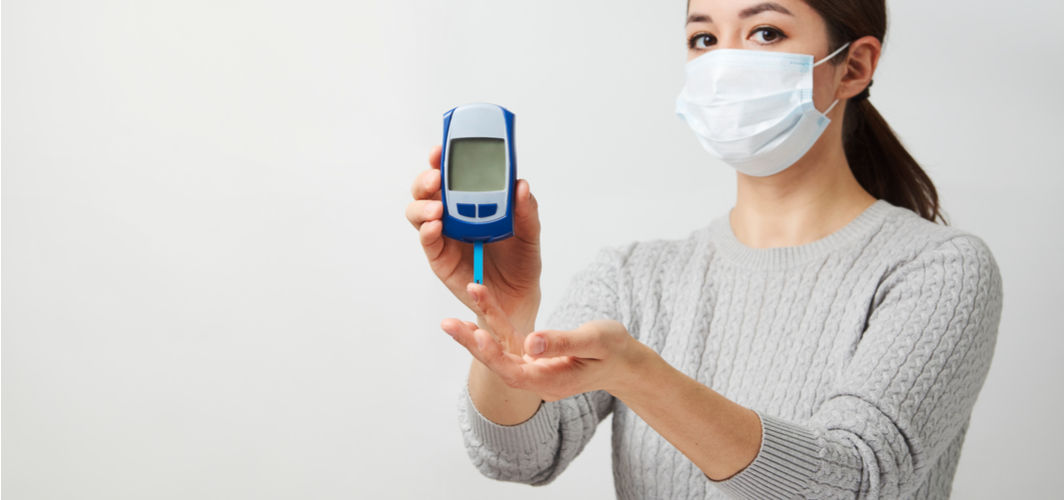Diabetes Management
7 Essential Diet Recommendations for Managing Diabetes
2 min read

Living with diabetes requires careful attention to diet and nutrition, as the foods you consume can significantly impact your blood sugar levels and overall health. While individual dietary needs may vary, some nutritional recommendations are considered necessary for effectively managing diabetes. In this article, we'll explore these essential dietary guidelines.
1. Carbohydrate Awareness
Carbohydrates have the most direct and immediate effect on blood sugar levels. Monitoring carbohydrate intake is crucial for people with diabetes.
- Focus on complex carbohydrates like whole grains, including buckwheat (kuttu), amaranth (rajgira), barley (sattu), sorghum (jowari), and whole wheat (gehu).
- Focus on low GI vegetables such as cucumber, beans, and legumes, as they have a more gradual impact on blood sugar compared to simple carbohydrates such as processed grains, table sugar, sweets, chocolates, and confectioneries.
2. Portion Control
Keeping portions in check helps manage calorie intake and prevent excessive carbohydrate consumption. Measuring or estimating portion sizes and using smaller plates can assist in portion control.
3. Balanced Meals
Consume balanced meals that include lean protein sources, healthy fats, and fibre-rich carbohydrates. Protein helps stabilize blood sugar levels, and healthy fats provide sustained energy.
4. Fiber Intake
Dietary fibre helps regulate blood sugar levels and promotes a sense of fullness. Incorporate fibre-rich foods like fruits, vegetables, whole grains, and legumes into your daily diet.
5. Limit Added Sugars
Minimize or eliminate foods and beverages high in added sugars, such as sugary drinks, candies, and desserts. Be vigilant about reading food labels for hidden sugars.
6. Consistent Meal Timing
Consistently timed meals and snacks help reduce hunger and provide a steady supply of energy by training the body's internal clock, or circadian rhythm, to process food at different times. When you eat at consistent intervals, your body becomes more efficient at releasing insulin and other hormones that regulate appetite and metabolism. This reduces the likelihood of extreme hunger spikes and crashes between meals, ensuring a more stable energy supply throughout the day.
7. Choose Healthy Snacks
While opting for snacks, pick nutrient-dense choices like nuts, seeds, Greek yoghurt, or vegetables with hummus. Avoid highly processed, sugary snacks, or packaged foods with high sodium.
Conclusion
Managing diabetes effectively requires a balanced approach to the regular diet, focusing on nutrient-dense foods and portion control. By following these essential guidelines and seeking professional guidance, individuals with diabetes can better control their condition and promote overall well-being. Remember that personalised dietary plans may be necessary, so consult your healthcare team to create a strategy that suits your unique needs.
Diabetes Management
Consult Top Diabetologists
View AllLeave Comment
Recommended for you

Diabetes Management
Diagnosing Diabetes Early: Know How To Prevent Complications
Early diagnosis of diabetes brings several significant benefits. It facilitates prompt treatment, prevents future complications, enables to plan lifestyle changes, promotes self-management, and provides support. It also helps in controlling blood sugar, avoiding long-term health complications, facilitating healthy habits, taking proper medication, and monitoring blood sugar for better disease management.

Diabetes Management
New Draft Article

Diabetes Management
How Can Diabetes Patients Boost Immunity During COVID-19?
Diabetes patients can boost immunity by maintaining good blood sugar control, adopting a healthy and balanced diet, getting regular exercise, prioritizing quality sleep, managing stress levels, practicing good hygiene, receiving recommended vaccinations on time, and staying connected with healthcare providers for guidance and support.
Subscribe
Sign up for our free Health Library Daily Newsletter
Get doctor-approved health tips, news, and more.
Visual Stories

8 Fruits That are Incredibly Healthy for Diabetes
Tap to continue exploring
Recommended for you

Diabetes Management
Diagnosing Diabetes Early: Know How To Prevent Complications
Early diagnosis of diabetes brings several significant benefits. It facilitates prompt treatment, prevents future complications, enables to plan lifestyle changes, promotes self-management, and provides support. It also helps in controlling blood sugar, avoiding long-term health complications, facilitating healthy habits, taking proper medication, and monitoring blood sugar for better disease management.

Diabetes Management
New Draft Article

Diabetes Management
How Can Diabetes Patients Boost Immunity During COVID-19?
Diabetes patients can boost immunity by maintaining good blood sugar control, adopting a healthy and balanced diet, getting regular exercise, prioritizing quality sleep, managing stress levels, practicing good hygiene, receiving recommended vaccinations on time, and staying connected with healthcare providers for guidance and support.
